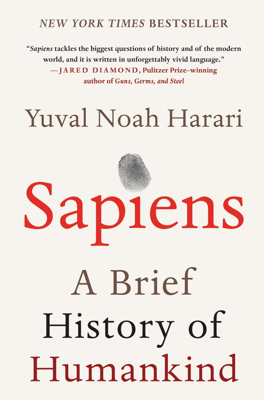The Tree of Knowledge
Early Homo sapiens, despite their physical resemblance to modern humans, initially had limited cognitive advantages over other species like Neanderthals. This changed around 70,000 years ago with the Cognitive Revolution, a period marked by significant developments such as the creation of art, the invention of tools like boats and needles, and concepts of religion and commerce. Researchers suggest that this revolution was precipitated by genetic mutations that enhanced cognitive abilities and communicative skills, particularly through complex language.
This new language was not merely a means of communication but a tool for forming large, cooperative social structures based on shared myths and fictions. It allowed Sapiens to share not only tangible information about the environment but also intangible concepts such as laws, social norms, and religions. These capabilities enabled them to form larger social groups and outcompete other species.
The "gossip theory" proposes that language evolved primarily as a social tool. It fostered cooperation by allowing individuals to share information about each other, enhancing trust and group cohesion. Unlike other species that gather in large numbers only with close kin, Homo sapiens could cooperate flexibly with large numbers of strangers, which became a critical advantage.
Moreover, the ability to discuss abstract concepts and fictional entities allowed Homo sapiens to believe in and disseminate shared myths, which underpinned organized societies, religions, and eventually complex institutions and technologies. These shared myths enabled unprecedented levels of cooperation among vast numbers of strangers, facilitating the rise of civilizations, legal systems, and corporations.
The Cognitive Revolution thus marks a pivotal shift where Homo sapiens began to live within an intertwined reality of the tangible and intangible. This new capacity to imagine and share complex fictions separated Homo sapiens from other species, enabling them not only to dominate the planet but also to reshape it according to shared beliefs and collective behaviors beyond the immediate dictates of biology.
